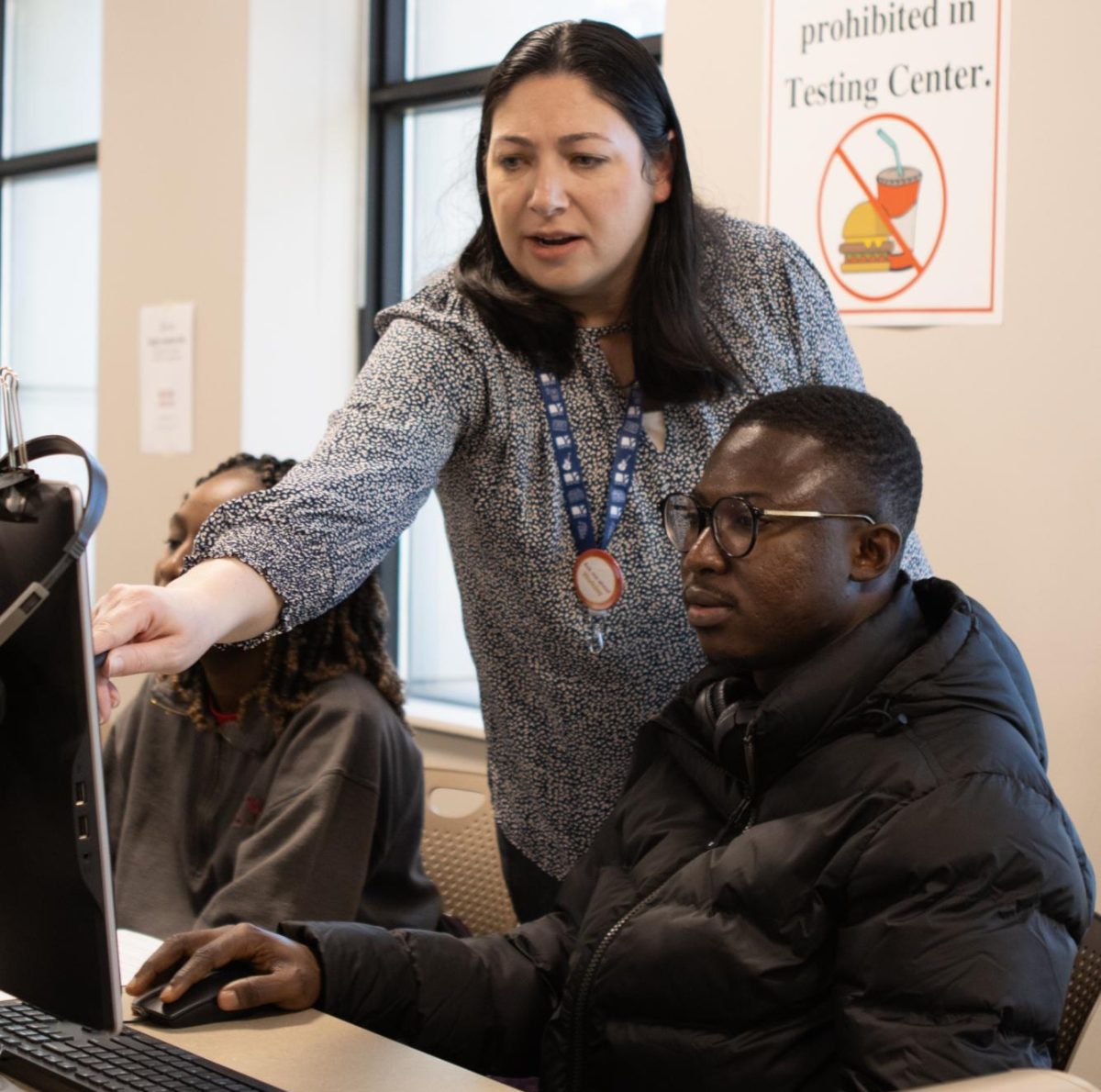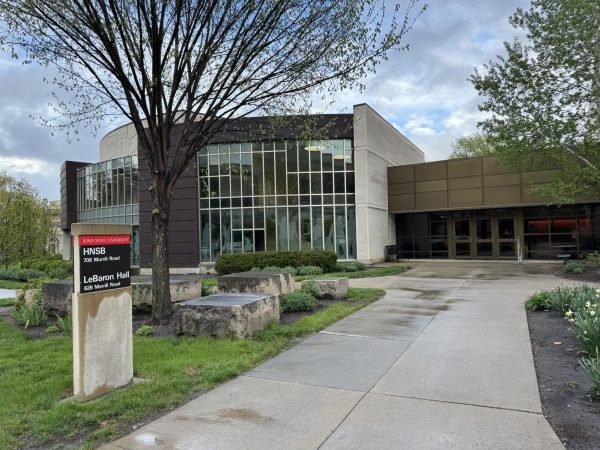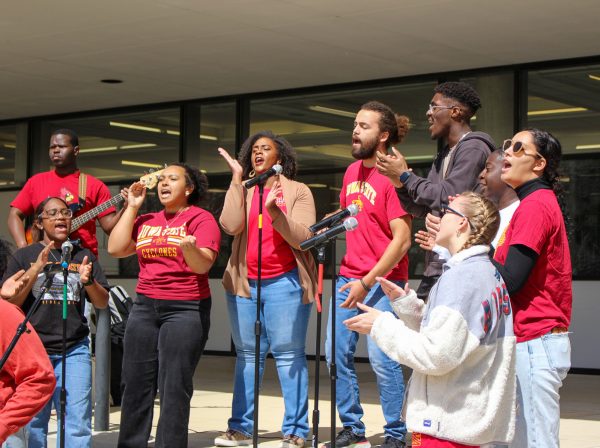Sustainable food for thought
June 5, 2007
Most students would agree that farm-fresh produce and dining services have nothing to do with each other.
All of that is changing now.
ISU Dining has initiated a new program, Farm to ISU, that will not only benefit students’ eating habits, but the Iowa economy as well. Farm to ISU is working hard to provide students with organic, locally grown and sustainable food choices.
“Sustainable” and “locally grown foods” are relatively new terms for ISU Dining, which has been trying to incorporate organic food for a couple of years.
Sustainable foods must be certified by the Food Alliance.
To be considered locally grown, the food must have been grown within 200 miles of Iowa State, and regional is within 500 miles.
The advantage of locally grown food is that it will cut down on gas usage, said Nancy Levandowski, director of ISU Dining.
“ISU Dining has always felt that this is important,” Levandowski said.
Farm to ISU is also educating students about which foods are good to eat and what new choices are available in the dining centers.
“One of Farm to ISU’s goals is to provide students the education about organics and sustainables to make an informed decision,” Levandowski said.
ISU Dining has many goals in its five-year plan, which can be seen at www.dining.iastate.edu/farm_to_isu.php. Some of the goals are: to purchase 35 percent of its food from local, organic and sustainable suppliers, to be better stewards of the Earth and to develop an on-campus organic cafe, among others.
Levandowski said she estimates Farm to ISU will generate $2 million for Iowa’s economy.
“Most of these people are sending their kids to our school,” Levandowski said. “It makes sense.”
Getting this information to students is hard when ISU Dining also has to make deals with farms. This is where Susan DeBlieck, graduate student in sustainable agriculture, steps in.
“Susan helps share the information with the students about the food and the farmers,” Levandowski said.
Through a grant from the Leopold Center for Sustainable Agriculture, DeBlieck is able to work part time with ISU Dining as program coordinator for Farm to ISU.
Her main job right now is communicating between ISU Dining and farmers by holding educational presentations, coordinating meetings and increasing food awareness, DeBlieck said.
“I am proudest of the awareness that I have catalyzed among the dining staff,” DeBlieck said.
Her decision to work on this program was a tough one, considering she was about to leave for Panama to work with a sustainable development nonprofit organization for four months.
“It was a very difficult decision, but I chose to stay in Ames because I knew that I could make the most difference in my own community,” DeBlieck said.
This project will continue to be part of her research, and said she is excited to continue to see the program grow.
As the program continues to expand, DeBlieck wants to incorporate more students into the Farm to ISU program.
“I hope to get more students involved on this project this coming year by helping to develop local menus for catering and creating a food awareness campaign on campus,” DeBlieck said.
















